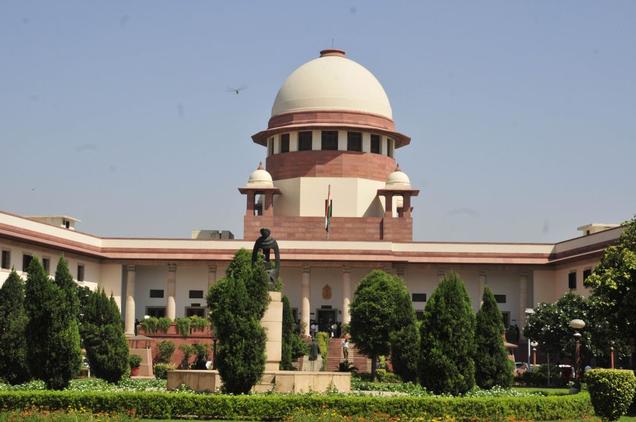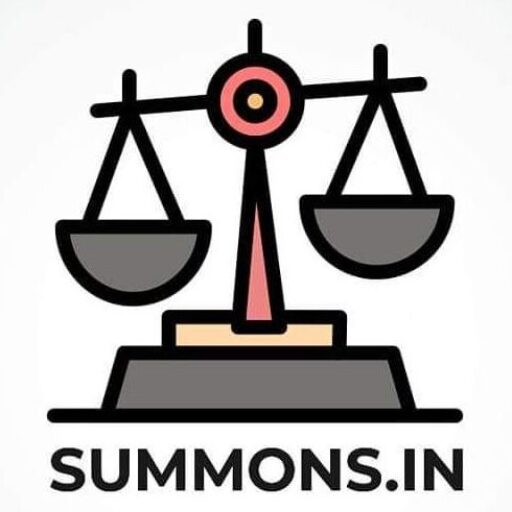
HDFC BANK LTD. Versus THE STATE OF BIHAR & ORS.
Date of order:- 22.10.2024
Appeal was filed against order of High Court of Judicature at Patna in Criminal Writ Jurisdiction.
Wherein the learned Single Judge dismissed the writ petition filed by the HDFC Bank, to quash the First Information Report being Case No. 549 of 2021 ,against certain officials of the appellant/bank working at its Exhibition Road Branch, Patna for the offences punishable under Sections 34, 37, 120B, 201, 206, 217, 406, 409, 420 and 462 of the Indian Penal Code, 1860.
In October, 2021, Deputy Director of Income Tax (Investigation), conducted a search and seizure operation in the case of several income-tax assessees including Shri Sunil Khemka (HUF), Smt. Sunita Khemka and Smt. Shivani Khemka. The said search and seizure operation was conducted on the basis of warrants of authorization issued under Section 132(1) of the Income Tax Act, 1961. During the course of the search, it was found that Smt. Sunita Khemka held a bank locker bearing No. 462 in the appellant-bank at its Exhibition Road Branch, Patna.
On the basis of the said operation, on 5th October, 2021, an order under Section 132(3) of the IT Act was served upon the Branch Manager of the appellant-bank at its Exhibition Road Branch, Patna by the concerned Authorized Officer, thereby directing the said branch of the appellant-bank to stop the operation of any bank lockers, bank accounts and fixed deposits standing in the names of Shri Sunil Khemka (HUF), Smt. Sunita Khemka and Smt. Shivani Khemka.
It was further clarified that contravention of the order would render the Branch Manager liable under Section 275A of the IT Act and the same would result in penal action.
In compliance of the aforesaid order, the appellant-bank blocked the bank accounts of the income-tax assesses named in the order and also sealed the bank locker bearing No. 462 belonging to Smt. Sunita Khemka.
SUBSEQUENT ORDER ANS BANK LOCKER
On 1st November, 2021, Respondent No. 5 issued an order to the Branch Manager of the appellant bank at its aforementioned branch thereby directing the appellant-bank to revoke the restraint put on the bank accounts of Smt. Sunita Khemka , in view of the restraining order dated 5th October, 2021 passed under Section 132(3) of the IT Act. Accordingly, Smt. Sunita Khemka, were to be allowed to operate their bank account.
The said order was received by the concerned Branch Manager of the appellant-bank of 8th November, 2021 at 4:00 p.m. However, on 2nd November, 2021 at 11:24 a.m., an email was sent to the Branch Manager which contained the same order.
Thereafter, on 9th November, 2021, the concerned branch of the appellant-bank allowed Smt. Sunita Khemka to operate her bank locker bearing No. 462 and proper entries recording the operation of the said locker were made in the bank’s records.
Subsequently, on 20th November, 2021, Respondent No. 5 conducted a search and seizure operation at the aforementioned bank locker in the concerned branch of the appellant-bank wherein it was found that Smt. Sunita Khemka had operated her bank locker with the assistance of the concerned officers of the appellant-bank. This was validated by the entry made in the bank’s records and the CCTV footage of the bank. Resultantly, the concerned officials of the aforementioned branch of the appellant-bank were found to have breached the restraining order dated 5th October, 2021.
Accordingly, on 20th November, 2021, Respondent No. 5 issued summons under Section 131(1A) of the IT Act to Branch Manager, Branch Operation Manager and Teller being the concerned officials of the appellant-bank at its aforementioned branch.
The aforementioned officials attended the office of Respondent No. 5 and their statements were recorded
wherein they stated that there had been an inadvertent error on the part of the bank officials and they had misinterpreted the order dated 1st November, 2021. Since the said order pertained to the bank accounts of the concerned individuals including Smt. Sunita Khemka, the bank officials had misread the order to understand /assume that the revocation of the restraint extended to the bank lockers as well.
Having misunderstood the order, the bank officials under a bona fide assumption that bank locker had been released as well, allowed Smt. Sunita Khemka to operate the same.
The statement of Smt. Sunita Khemka had also been recorded wherein she stated that her accountant Surendra Prasad, after speaking with Deepak Kumar, had informed her that the restraint on the aforementioned bank locker had been revoked and she could operate the said locker.
Dissatisfied with the said explanations, Respondent No. 5 submitted a written complaint to the SHO, Gandhi Maidan Police Station seeking to register an FIR against Smt. Sunita Khemka and the concerned bank officials on the ground that the order dated 5th October, 2021 had been violated owing to the unlawful operation of the aforementioned locker.
On the basis of the said complaint, on 22nd November, 2021, an FIR being Case No. 549 of 2021 came to be registered against Smt. Sunita Khemka and the staff of the appellant-bank at its aforementioned branch for the offences punishable under Sections 34, 37, 120B, 201, 207, 217, 406, 409, 420 and 462 of the IPC at the Gandhi Maidan Police Station, Patna.
Aggrieved by the registration of the FIR, the appellant-bank preferred a Criminal Writ Jurisdiction Case thereby invoking the inherent power of the High Court under Section 482 of the Code of Criminal Procedure, 1973 for the quashing of the FIR. The High Court vide the impugned order dismissed the writ petition finding it to be devoid of merit.
Being aggrieved thereby, the appeal was filed in Supreme Court.
It was submitted on behalf of Bank that on the face value the FIR does not disclose any mens rea of the officials of the appellant-bank and it also fails to disclose the commission of any offence. That the complaint also does not disclose any specific allegation with regard to collusion between the unnamed staff of the appellant bank with Ms. Sunita Khemka.
The only allegation against the unnamed staff members of the appellant-bank is that while the Prohibitory Order dated 5th October 2021 was in force in relation to the bank locker No.462, Ms. Sunita Khema, customer of the appellant-bank, was permitted to operate the said bank locker.
On face value, the complaint does not disclose commission of the alleged offences of Sections 420, 409, 406, 462, 206, 217, 201, 34, 120B and 37 of the IPC. It is submitted that it is settled law that the High Court while considering a petition under Section 482 of the Cr.P.C. for quashing the FIR must examine as to whether prima facie the ingredients of the offence have been made out in the FIR or not.
Court said, In the present case, we are only considering the FIR registered for the offences punishable under the different provisions of the IPC.
The FIR was registered on the basis of the complaint lodged by the Deputy Director of Income-Tax (Inv.) Unit-2(2), Guwahati, respondent No.5 herein. The only statement/allegation in the complaint with regard to the bank and its officers is thus:
That It was seen that though vide order dated 5th October 2021, a restraint order was imposed in respect of Bank Lockers, Bank Accounts and Fixed Deposits, the Revocation Order dated 1st November 2021 only refers to the Bank Accounts.
In the statements of the Officers of the appellant-bank, it is stated that the bank locker was inadvertently permitted to be operated, by misinterpreting the Revocation Order dated 1st November 2021.
In the present case, the FIR does not show that the appellant-bank had induced anyone since inception.
For bringing out the offence under the ambit of Section 420 IPC, the FIR must disclose the following ingredients:
(a) That the appellant/bank had induced anyone since inception;
(b) That the said inducement was fraudulent or dishonest; and
(c) That mens rea existed at the time of such inducement.
FIR ON BANK DISCUSSED BY COURT
The appellant/bank is a juristic person and as such, a question of mens rea does not arise. However, even reading the FIR and the complaint at their face value, there is nothing to show that the appellant-bank or its staff members had dishonestly induced someone deceived to deliver any property to any person, and that the mens rea existed at the time of such inducement. As such, the ingredients to attract the offence
under Section 420 IPC would not be available.
Insofar as the provisions of Section 409 IPC is concerned, the following ingredients will have to be made out:
(a) That there has been any entrustment with the property, or with any dominion over property on a
person in the capacity of a public servant or banker, etc.;
(b) That the said person commits criminal breach of trust in respect of that property.
For bringing out the case under criminal breach of trust, it will have to be pointed out that a person, with whom entrustment of a property is made, has dishonestly misappropriated it, or converted it to his own use, or dishonestly used it, or disposed of that property.
In the present case, there is not even an allegation of entrustment of the property which the appellant-bank has misappropriated or converted for its own use to the detriment of the respondent No.5. As such, the provisions of Section 406 and 409 IPC would also not be applicable.
As already discussed hereinabove, since there was no entrustment of any property with the appellant-bank, the ingredients of Section 462 IPC are also not applicable.
Likewise, since the offences under Section 206, 217 and 201 of the IPC requires mens rea, the ingredients of the said Sections also would not be available against the appellant-bank.
The FIR/complaint also does not show that the appellant bank and its officers acted with any common intention or intentionally cooperated in the commission of any alleged offences. As such, the provisions of section 34, 37 and 120 B of the IPC would also not be applicable.
Hon’ble Supreme Court was of the considered view that the continuation of the criminal proceedings against the appellant-bank would cause undue hardship to the appellant-bank.
In the result, the following order was passed:-
(i) The appeal was allowed.
(ii) The judgment and order dated 8th June 2022 passed by the learned Single Bench of the High Court of Judicature at Patna in Criminal Writ Jurisdiction Case No. 1375 of 2021 was quashed and set aside.
(iii) The First Information Report being Case No. 549 of 2021 against certain officials of the appellant/bank working at its Exhibition Road Branch, Patna for the offences punishable under Sections 34, 37, 120B, 201, 206, 217, 406, 409, 420 and 462 of the Indian Penal Code, 1860 was also quashed and set aside qua the appellant/bank.
Edited & compiled by
9891800100
